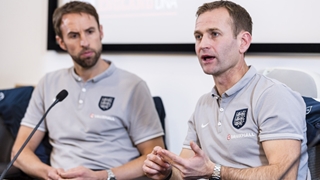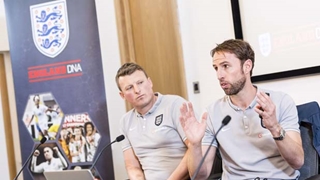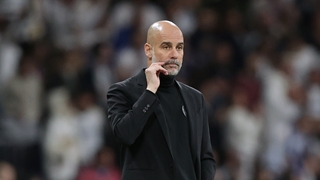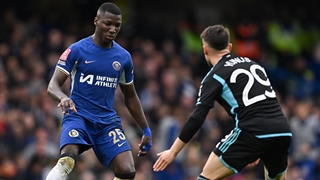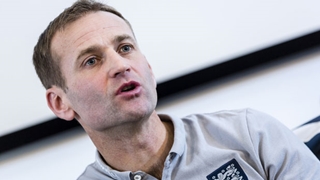
Dan Ashworth took time out at The FA Licensed Coach Club Conference at St. George's Park to explain more about England's evolving DNA.
The FA's director of elite development was a guest on BBC Radio 5 Live's Sportsweek programme on Sunday morning, and was speaking about the philosophy aimed at England youth teams from U15s upwards.
Launched last week at the national football centre, the DNA is intended to create a culture of consistency around the development of future England senior players, for both men's and women's teams.
Ashworth said: "We felt that the teams needed an identity. I think anyone who works in youth development would say it is really important the players have some key messages when they come in.
"It's a development team programme, so when the players come through there is a consistency of messages around how we play, how we train, how we support players.
"Also some of the values we are looking for in our England players as they make that transition to hopefully give Roy [Hodgson] and Mark [Sampson] a bigger pool of players who have had the relevant international experiences to help them with the challenges of senior football."
Ashworth was keen to point out that it does not necessarily mean England youth teams will all play the same formation, but it's more about the philosophy and style of play.
The long-term objective, he said, is to develop as many players who are ready to compete – and adapt – at senior international level.
"We don't stick to the same system, we have principles and philosophies of play," he added.
"Most of our teams will be around a 4-3-3 in the development teams, because it is a really good way to teach players the game.
"The majority of teams at international level will try and overload midfield and try to dominate midfield, so it's important to try and have the right number of bodies in there."
Ashworth continued: "However, we have a duty to get our best players on the pitch.
"So if our best U17s are out-and-out centre-forwards, then we may well change the system and play with a diamond, or a 4-4-2, or a version to try and get them on the pitch.
"Youth development is about developing players who are able to get into your senior team, whether at a club or at an international set-up."
Another concept of the DNA that has caught the eye is the use of new technology to communicate the messages to players and coaches alike.
Delegates at the Coaches Club Conference all received a USB wristband with some of the new documentation.
And Ashworth explains that this is the best way to ensure the evolving DNA messaging is never out of date.
"The coaches here at the Licensed Coaches Club have got a memory wristband with a lot of the work that we have done, so they can take away some of the messages we have in our DNA," he said.
"We'll communicate with the players in a variety of different ways - there are lots of ways we can communicate remotely with players before they join up on international duty to make sure we stay in contact during the time between international events."
He added: "We did have a document in 2010, The Future Game, which is a super document. But the minute a document is published it's out of date.
"This is interactive, we can keep updating it, maybe hone in on one or two things, make it specific to each player or team.
"So there are lots of wonderful things we can do in this day and age in communicating away from St. George's Park."
Click here to listen to the full interview with Dan Ashworth.





